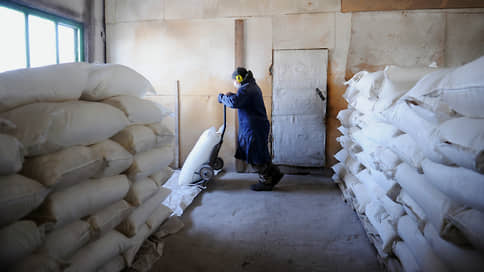AEON grinds grain – Kommersant
[ad_1]

Roman Trotsenko’s AEON corporation has a growing interest in agribusiness. After purchasing the Rostagro agricultural holding with 240 thousand hectares of agricultural land, AEON planned to create an exporter of flour and niche crops with an office in Dubai. The supply of these products is not constrained by export duties, but their sales markets are limited, experts point out.
Roman Trotsenko’s AEON corporation (ranks 38th in the Forbes ranking with a fortune of $3.2 billion) plans to launch a company in Dubai to export flour and niche crops such as chickpeas, lentils, flax, etc. This became known from a published in the AEON profile on the HeadHunter portal, the vacancies of the head of the relevant structure in Dubai. The candidate’s responsibilities include building a team, entering new markets, developing export potential. In addition, AEON has begun searching for a flour export manager for the Moscow office. In AEON, “Kommersant” did not answer.
AEON’s assets include the holding of regional airports Novaport, fertilizer manufacturer Azot, Aeon Development, etc. At the end of 2022, Aeon Agro, controlled by Mr. 240 thousand hectares of agricultural land, mainly in the Penza and Saratov regions. At the end of March 2023, at a meeting between Roman Trotsenko and the Governor of the Penza Region Oleg Melnichenko, plans of Rostagro were discussed, including the possibility of building a flour production facility, the press service of the head of the region reported.
As reported by the Union of Grain Exporters, in the 2021/22 season, Russia more than tripled flour exports, to 488,000 tons. This season, through February 2023, the volume of deliveries exceeded 500 thousand tons. In 2022, the main buyers of Russian flour were Georgia, Iraq, Afghanistan, Turkey and Turkmenistan, Agroexport reported. Chickpea this season until February 2023, according to Kommersant’s data, 199.3 thousand tons were exported, lentils – 69.4 thousand tons.
Director General of the Institute for Agricultural Market Studies Dmitry Rylko says that the growth rate of flour exports from Russia is slowing down, but there is still potential to increase supplies. According to him, for most buyers of these products, the key factor is the price. But, as Mr. Rylko notes, the volume of flour exports from Russia directly depends on the wheat export duty: if the duty is reduced, flour exports may stop growing and even decrease. From June 1, the Ministry of Agriculture plans to revise the mechanism for calculating the export duty on wheat, which should lead to a decrease in the indicator.
According to a Kommersant source in the market, there is great interest in the export of flour and niche crops and competition is constantly increasing. Andrey Sizov, director of Sovecon, notes that the volume of the world flour market is limited, the main buyers are very picky. It can be difficult to find suitable flour on the Russian market, a Kommersant source confirms. In addition, Mr. Sizov continues, strong positions in the export of flour in the world are occupied by companies from Turkey and Kazakhstan. Turkish suppliers, in particular, have a favorable tax regime for flour exports and geographic proximity to major buyers, the expert says.
Eduard Zernin, Chairman of the Board of the Union of Grain Exporters, says that the emergence of new players indicates the investment attractiveness of agriculture. The main thing, he notes, is that all new “niche traders have enough business.” Production volumes of niche crops are not significant, and a major expansion of crops is required to satisfy the ambitions of new players, which will not be possible until the 2024/25 season, Mr. Zernin says. Andrey Sizov adds that niche crops are sold in small batches, and traders working in the segment do not have the opportunity to hedge risks.
[ad_2]
Source link





